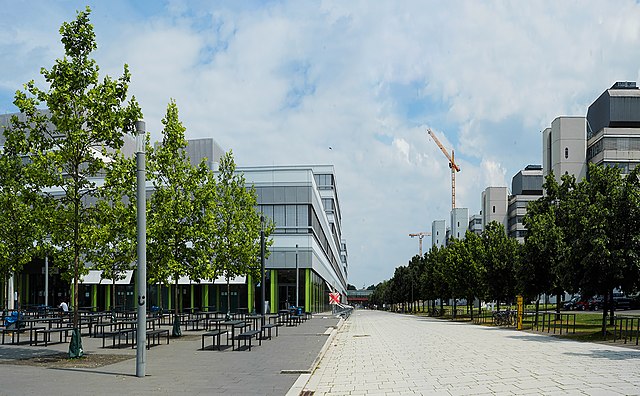
Thammasat University students interested in ASEAN studies, Vietnam, Indonesia, political science, environmental studies, economics, ecology, sociology, social anthropology, and related subjects may find it useful to participate in a free 4 March Zoom webinar on Just Energy Transition Partnerships: Insights from Indonesia and Vietnam.
The event, on Monday, 4 March at 2pm Bangkok time, is presented by the ISEAS – Yusof Ishak Institute, Singapore.
The TU Library collection includes research about different aspects of ASEAN energy transition partnerships.
Students are invited to register at this link:
https://us06web.zoom.us/webinar/register/8817084994822/WN_ayO0DfYKSjKbxBwDl0pLyw#/registration
The event webpage explains:
The lack of access to climate finance remains a key challenge in energy transition in Southeast Asia. Compounding the finance gap is an absence of regional policies to mitigate the socio-economic impacts of the energy transition.
The Just Energy Transition Partnership (JETP) initiative, launched at the sidelines of COP26 in 2021 backed by the G20, has been presented as a potential funding mechanism to bring together public and private sector resources to transition countries away from coal dependence and towards greater utilisation of renewable energy to achieve their climate goals. The aim of the JETP is also to facilitate a “just and equitable” energy transition, including fair labour transitions, quality jobs and protecting livelihoods. A US$20 billion JETP package was announced for Indonesia at the G20 Summit in November 2022, followed by a US$15 billion package for Vietnam the following month. Despite its potential, significant international and domestic challenges could obstruct the effective implementation of the JETP in both countries.
This webinar will review the progress of JETP policy roll-outs and discuss implications and challenges for Vietnam and Indonesia and offer expert assessments of Indonesia’s Comprehensive Investment and Policy Plan and Vietnam’s Just Energy Transition Partnership Resource Mobilisation Plan for the JETP and how to consider a ‘just transition’ approach in the policymaking process.
About the Speakers
Ms. Melinda Martinus is Production Editor of the ASEAN Studies Centre’s biannual flagship magazine, ASEANFocus. […]
Mr. Paul Butarbutar is the Deputy Head of the JETP Indonesia Secretariat.
Ms. Nguyen Phuong Mai is the Vietnam Country Director for The Asia Group based in Hanoi.
Dr. Julia Behrens is a postdoctoral fellow at the Department for Social Anthropology at Bielefeld University, Germany.
Last year Southeast Asia Development Solutions (SEADS) published a policy brief, available for free download online, on Energy transitions in Vietnam and Indonesia: Building blocks for successful Just Energy Transition Partnerships
An Overview notes:
This policy brief proposes an analytical framework to assess the potential success of innovative finance models in tackling carbon lock-in and accelerating climate-resilient development in a just and fair manner. It has been prepared in light of recent high-level partnership agreements in Indonesia (November 2022) and Vietnam (December 2022).
What is happening in Indonesia and Vietnam?
Two major economies of Southeast Asia, Indonesia and Vietnam, stepped up their announcement of net zero pledges and signed a Just Energy Transition Partnership (JETP) with International Partners Group (IPG) members1 to articulate a social justice component into climate action, against the backdrop of intensification of the energy trilemma. The political declaration to JETP in Indonesia and Vietnam will mobilise US$20 billion for Indonesia and US$15.5 billion for Vietnam in the next three to five years to decommission and repurpose coal-fired power stations, increase investment in renewable energy and energy storage, improve the power generation technology, expansion and modernisation of the transmission and distribution grids, and increase energy efficiency.
What does a Just Energy Transition Partnership entail?
JETPs aim to accelerate the energy transition in Indonesia and Vietnam by promoting a partner country-led model that aims to phase out/down unabated coal-fired power generation and cease issuance of new permits and construction of new unabated coal-fired power plants. In doing so, JETPs aim to ensure just, equitable and inclusive outcomes for consumers, workers, vulnerable communities in coal-dependent regions and companies by achieving the following outcomes. The first aspect is related to the diversification of the local economy. It aims to create quality jobs and regional value chains while providing educational and vocational training and re-skilling and upskilling programmes for the workforce. In addition to the social protection schemes for vulnerable constituencies, JETPs aim to mitigate the vulnerabilities of carbon-intensive industries. These vital economic sectors include thermal electricity generation, coal mining, heavy industry and transport. The second aspect concerns energy justice and aims to ensure affordable electricity for low-income groups. The final aspect is to attract large-scale domestic and international private investments to increase the capacity to deliver the pillars above. […]
Why is a just transition essential?
Just transition rhetoric increasingly plays a central role in the interface between curbing emissions and the socio-economic disruptions of climate action. A just transition is commonly defined as a fair and equitable process of moving toward a post-carbon society for workers in extractive industries and people who live adjacent to high-emitting sectors and are often economically dependent on them. […]

From the report’s Conclusion:
Just Energy Transition Partnerships offer multiple and significant benefits. They can potentially accelerate the energy transition in Indonesia and Vietnam while incorporating favourable social outcomes for impacted constituencies. Even though JETPs are not binding international agreements and do not give rise to rights and obligations under international law, they represent a financially sizable step towards accelerating the low-carbon transition efforts of ASEAN’s significant economies while addressing socio-economic impacts, strengthening governance and catalysing finance.
JETPs bring game-changing opportunities. JETPs can assist Indonesia and Vietnam to enhance their energy transition potential, by ensuring the benefits and burdens are distributed fairly. JETP is an innovative tool to enhance energy security, accessibility, affordability, and sustainability in Indonesia and Vietnam through facilitating sector development, market building, and a regular flow of private investment. Moreover, the critical element in decarbonisation efforts – centring equity and justice for key transition stakeholders – offers the potential to avoid exacerbating existing injustices embedded in a coal-reliant socio-technical regime. An accelerated, equitable transition is achievable.
The success of JETPs is contingent on how they deliver on the systemic, financing, governance and socio-economic benchmarks we propose in this policy brief. Vitally, we already have momentum – The Indonesian and Vietnamese governments’ political will to NZE, coupled with fast-track finance from industrialised countries, can potentially accelerate the energy transition and deliver positive socioeconomic outcomes. The key question is how to build on this momentum and integrate the proposed benchmarks into concrete policy and implementation plans. This requires a multi-stakeholder approach and a strong commitment to transparency and accountability throughout planning and implementation processes.
This will not be plain sailing.
Various barriers have the potential to slow down or block progress for JETP implementation. These include systemic challenges (such as network capacity), financing challenges (such as over-reliance on sovereign debt and limited equity raising capacity), governance challenges (such as strong influence of incumbent industries) and socio-economic challenges (such as limited fiscal capacity and social protection measures). The JETP Investment and Policy Plan and Resource Mobilisation Plan can enhance the enabling environment needed to deliver progress on the building blocks of a just transition offered in this policy brief, addressing the bottlenecks regarding systemic, financing, governance and socio-economic aspects.

(All images courtesy of Wikimedia Commons)

